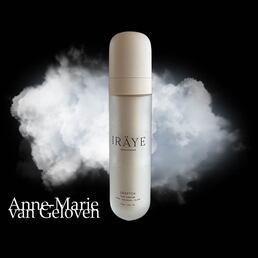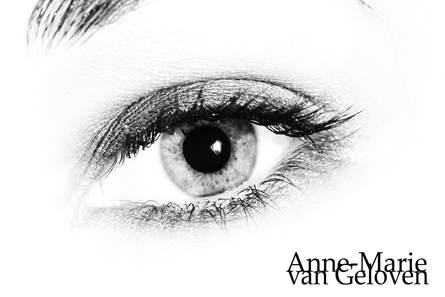
While factors like genetics and lifestyle (including sun exposure) play significant roles in skin ageing, the role of the lymphatic system in skin ageing is an overlooked however interesting strategy to improve skin's youthful functional (health) and physical attributes (beauty).
The lymphatic system, a vital part of the immune system, is responsible for draining excess fluid, toxins, and waste products from tissues. In the skin, lymphatic vessels collect waste and transport it to lymph nodes for filtration. The lymphatic vessels work with tiny, reflexive muscular contractions constantly pumping cleansing (toxins and debris) lymph fluid through their channels. Interestingly it explains why injections with the muscle relaxant botulinum toxin can cause oedema. The function of the lymphatic system
As we age the lymphatic function and density is decreasing 1:
Effects of lymphatic system decline on skin:

Rejuvenating the lymphatic system for youthful sculpted skin:
Wrongful injected fillers in the tear trough or malar (eye socket - cheek area) septum can lead to worsening of malar oedema (fluid retention) or malar bags. Always consult a qualified healthcare professional or dermatologist to determine the most suitable approach for your particular skin condition and rejuvenation goals. Take care! Anne-Marie References: 1. Structural and Functional Changes in Aged Skin Lymphatic Vessels R. Kataru et al. Front. Aging, 2022 2. Reduction of lymphatic vessels in photodamaged human skin Kentaro Kajiya, Rainer Kunstfeld, Michael Detmar, Jin Ho Chung J Dermatol Sci. 2007 3. Patent Cosmetic preparations comprising natural activators 4. Patent Cosmetic preparations comprising daphne extracts
Comments

We all learned that sleeping in make-up is the ultimate skincare sin. What is bad about it is when you go 24 hours without washing your face and end up going to bed leaving your day-time make-up on. Over the course of the day, our skin accumulates pollutants, dirt and dead skin-cells.
If dirt and pollutants are left on the skin, they may cause micro-inflammation and contribute to premature ageing skin via a process called inflamm-aging and free-radical damage which is a major contributor to skin-ageing. The combination of both micro-inflammation and free-radical damage is called ox-inflammation. We should aim to reduce or preferably avoid it. Pollution, dirt and sebum (oils) can impact the skin's healthy pH balance and thus lead to a weakening of the skin barrier function, more sensitive skin, dehydration, slowed down skin-cell renewal process and thus ageing. Not removing dead skin cells together with dirt increases the risk of clogged pores. Make-up itself usually doesn’t contain harming ingredients. Coloured micro-pigments actually provide additional sun-protection. Make-up or foundation itself is thus not the problem, however the fact that we don’t cleanse our skin after a busy day and/or evening is what could make us age faster. Not doing your PM cleanse and care routine is anyway a missed opportunity to support your skin’s night-time recovery with beneficial active ingredients. If you go out in the evening, take the opportunity to cleanse before getting ready and get rid of debris which was accumulated during day-time. Don’t worry about falling asleep in your make-up once or twice. Just don’t make it a habit. I would always aim to remove eye make-up. Sleeping in full eye make-up (mascara, liner, eyeshadow) increases the risk of an eye-inflammation, redness and corneal abrasions. Waking up with “panda-eyes” filled with black rheum or goop isn’t pretty either. Take care 
One of the frequently asked questions is, if it's necessary or if there is a benefit using a special eye care or cleansing products. Yes, there is!
As I mention in many of my previous posts, the right pH-level is very important for healthy skin. Skin usually prefers a pH of around 5. However there are some area's where the skin's natural pH balance is a little bit different. One of those area's is the area around the eyes. The preferred pH-level there is around 7, thus less acidic and more alkalic in comparison to your regular cleansing or care product for face or body. This is one of the most important reasons why I would recommend to use a special eye make-up remover and eye care product, as they are adjusted to the pH level most suitable for use in the eye area. Furthermore, special eye products are tested and proven to be safe when used around the eyes, while it isn't always recommended or proven for a regular face product. Some care products have a tendency to "travel" or migrate into the eye area. Even when not directly applied around the eyes, they might end up there. A special eye care product can form a "barrier" and thus help to prevent that unwanted products move to the eye area and cause irritation. I would particularly recommend the use of an eye cream when using other products containing gold standard anti-ageing active ingredients like Vitamin A, C (or derivatives of both), Hydroxy Acids (Alpha, Beta or Poly), when you have experienced some sensitivity of the eyes or eye area in the past or have a more problematic skin type. Eye care products preferably should not contain Vitamin C (L-Asorbic Acid or related) as it requires a low pH value of <4 to be active and do it's job properly. Eye care products with Vitamin C therewith are either too acidic to be used in the eye area or alternatively too alkalic for the Vitamin C to be effective. Safe to use in the eye area are products containing Hyaluronic Acid. Although "Acid" is in the name, Hyaluronic Acid isn't acidic. One of it's key functions is attract and bind water, which usually has a pH of ~7. Take care! 9/2/2018 Comments Safety checklist eye cosmetics
Safe use of cosmetics and care products is particularly important for the sensitive eye area. If you've ever or never had a problem, here is how you can avoid them..
Irritation If any eye cosmetic or care product causes irritation, stop using it immediately. If irritation persists, see a health care provider. Infection Avoid using eye cosmetics if you have an eye infection or the skin around the eye is inflamed. Wait until the area is healed. Discard any eye cosmetics you were using when you got the infection. Be aware that there are bacteria on your hands that, if placed in the eye, could cause infections. Hygiene Wash your hands before applying eye cosmetics. Make sure that any instrument you place in the eye area is clean. Don't share your cosmetics. Another person's microflora may be hazardous for you. Packaging Don't allow cosmetics to become covered with dust or contaminated with dirt or soil. Keep containers and nozzles clean. Don't use old containers or eye cosmetics and don't re-use containers. Never trust a product that smells funky, looks dirty, or past the open-jar time. Mascara Discard dried-up mascara. Don't add saliva or water to moisten it. The bacteria from your mouth may grow in the mascara and cause infection. Adding water may introduce bacteria and will dilute the preservative that is intended to protect against microbial growth. Manufacturers usually recommend discarding mascara two to four months after purchase. Storage Don't store cosmetics at temperatures above 85 degrees F or 30 degrees Celsius. Cosmetics held for long periods in hot cars, for example, are more susceptible to deterioration and bacteria. Some products are best stored in the refrigerator. Read the leaflet or follow the instructions how to best store the product. Application When applying or removing eye cosmetics, be careful not to scratch the eyeball or other sensitive area. Never apply or remove eye cosmetics in a moving vehicle. Don't use any cosmetics near your eyes unless they are intended specifically for that use. For instance, don't use a lip liner as an eye liner. You may be exposing your eyes to contamination from your mouth, or to color additives that are not approved for use in the area of the eye. Avoid color additives that are not approved for use in the area of the eye, such as "permanent" eyelash tints and kohl. Tools If you use make-up brushes or sponges, clean them every week with a special product or soap. Give them additionally from time to time an extra spritz with a disinfectant. Don't mix it up Sometimes you might feel to mix several products or add something to the product. Problems can arise if you challenge a product’s preservative capability, which is optimal and tested only with the original formula and packaging. Check ingredient list As with any cosmetic product sold to consumers, eye cosmetics are required to have an ingredient declaration on the label. Check if there is anything listed you don't tolerate or like. If the product doesn't have the ingredients listed, the product may be considered misbranded and illegal. Do the same for adhesives used for lash extensions or false lashes. Be aware of testers Keep in mind when you come across “testers” at retail stores that they might be contaminated. If you do sample cosmetics at a store, be sure to use single-use applicators, such as clean cotton swabs. Check how the store maintains their testers. If possible, ask for a sample, especially for care products. Using a few applications gives you a better idea about the compatibility (how well your skin tolerates the product), if you like the texture and enjoy the product. Take care. 7/7/2018 Comments Sleep in your eyes
That sometimes yellowish coloured "goop" in your eyes when you wake up has a function.
The scientific name of "sleep" is rheum, and is in fact a combination of dried tears, oils, skin cells, debris and mucus. The tear ducts produce 24/7 tears to keep the eyes moist and protect our eyes against dirt, irritants, allergens and bacteria. Because you don't blink while you are sleeping, you don't "wipe away" the excess of tears with debris. It can be wet and sticky. After a while, the some of it's liquid may evaporate and the rheum may end up crusty and ends up collected in the inner-corners of your eyes. Although unflattering, it's perfectly normal. Simply remove the rheum using a wet (clean water only) cloth or cotton pad and wipe towards the inner corner of the eye. A few conditions can increase the production of sleep. For example: allergic conjunctivitis or eye infections. The amount of rheum can be so severe in the morning that the eyes are "glued" together and difficult to open. In such cases it's recommended to consult a qualified healthcare provider. Take care. |
CategoriesAll Acne Ageing Aquatic Wrinkles Armpits Biostimulators Blue Light & HEVIS Cleansing CoQ10 Cosmetic Intolerance Syndrome Deodorant Dermaplaning Diabetes Dry Skin Evidence Based Skin Care Exfoliation Exosomes Eyes Face Or Feet? Facial Oils Fibroblast Fingertip Units Gendered Ageism Glycation Gua Sha Hair Removal Healthy Skin Heat Shock Proteins Hormesis Humidity Hyaluron Hyaluronidase Hypo-allergenic Indulging Jade Roller Licochalcone A Luxury Skin Care Lymphatic Vessel Ageing Malar Oedema Menopause Mitochondrial Dysfunction Mood Boosting Skin Care Neurocosmetics Ox Inflammageing PH Balance Skin Photo Biomodulation Polynucleotides Psoriasis Regenerative Treatments Review Safety Scarring Sensitive Skin Skin Care Regimen Skin Flooding Skin Hydration Skin Senescence Skip-Care Sleep Slugging Sunscreen Tanning Under Eye Bags Vitamin C Well Ageing Skin Care Wound Healing Wrinkles
Archives
April 2024
|



 RSS Feed
RSS Feed
